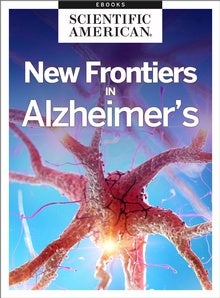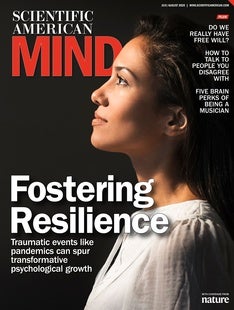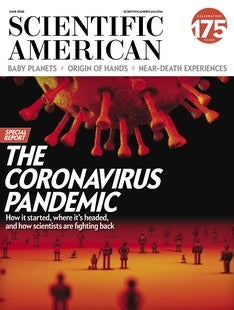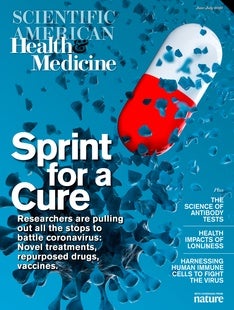 |
| June 12, 2020 |
Dear Reader,
COVID-19 is disproportionately killing people of color, particularly Black Americans, who have been dying at more than twice the rate of white people. The reason for these disparities is not biological. It is the result of the deep-rooted and pervasive impacts of racism, according to epidemiologist and physician Camara Phyllis Jones. In an interview with Scientific American, featured in our lead story, Jones explains the ways that discrimination has shaped the suffering produced by the pandemic. Also in today's news, researchers have discovered that a virtually indestructible type of chemical has been building up in the Arctic since the 1990s. The presence of these "forever chemicals" is undoubtedly growing worldwide, scientists say. And lastly, check out the latest episode of our 60-Second Science podcast on delicate mucus houses built by undersea creatures. |
| | Sunya Bhutta, Senior Editor, Audience Engagement
@sunyaaa | |
 |
| |
| |
| Biology 'Snot Palaces' Reveal Undersea Creature Secrets Scientists are studying the delicate mucus houses built by creatures called larvaceans to better understand how they live. Christopher Intagliata reports. |  | By Christopher Intagliata | 02:12 | | | |
| |
| |
| Cognition Wrong-Headed Arrows This illusion takes the right of way with your perspective | | By Susana Martinez-Conde,Stephen Macknik | | | |
| |
FROM THE STORE
 | | New Frontiers in Alzheimer's Until recently, one idea has dominated research in treating Alzheimer's disease: the amyloid hypothesis. Those therapies have repeatedly fallen short, and in this eBook we take a look at where that hypothesis stands today. We examine recent research into the spectrum of disease causes, including inflammation and immune dysfunction; cutting-edge treatments, including deep-brain stimulation and magnetic resonance–guided focused ultrasound; as well as lifestyle interventions that can help protect from disease. |  | | |
| |
FROM THE ARCHIVE
 | | | |
| |
LATEST ISSUES
 |
| |
| Questions? Comments?  | |
| Download the Scientific American App |
| |
| |




















Comments
Post a Comment